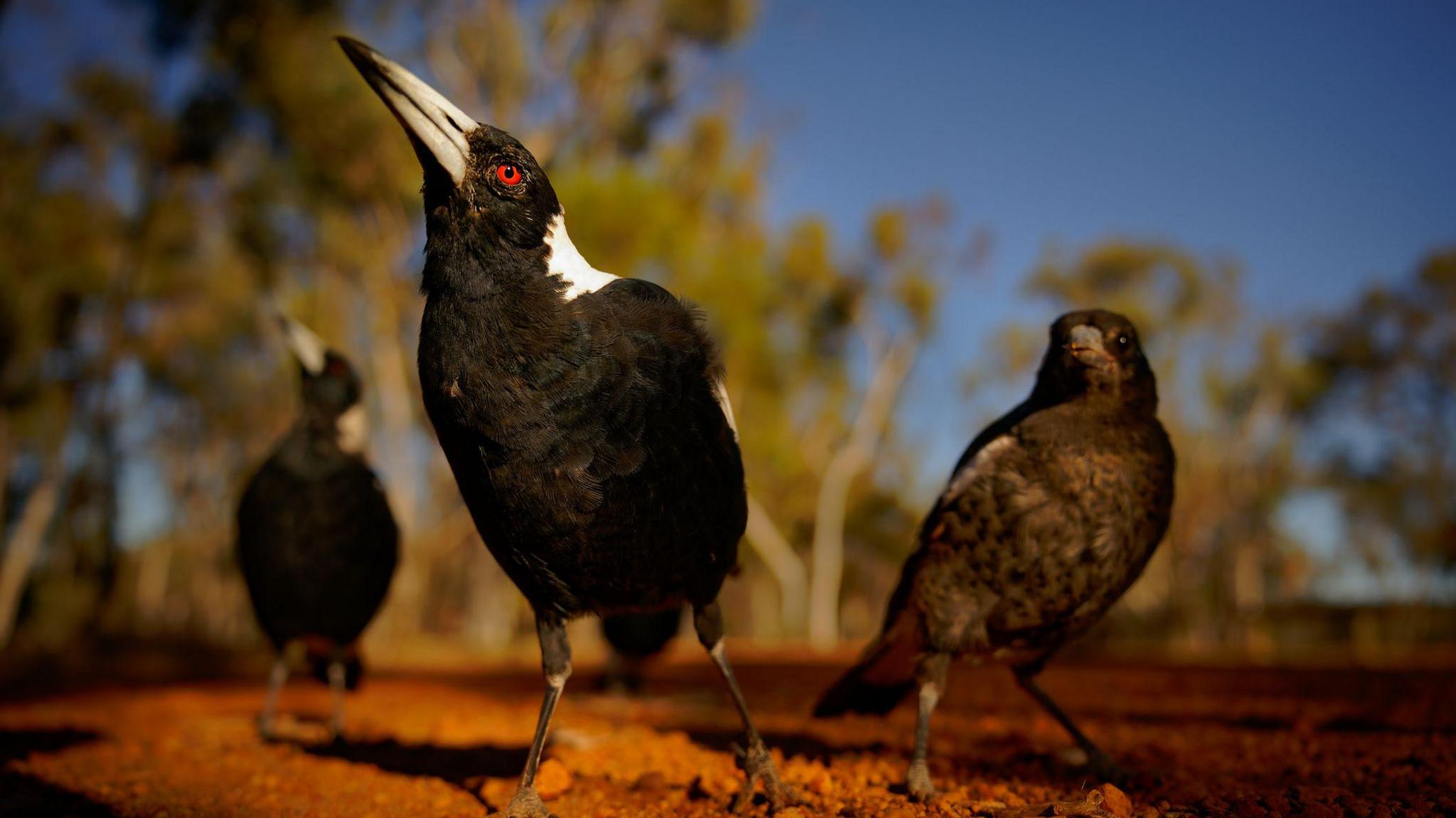Why it's good news for 'amazing species' of grouse in Scotland
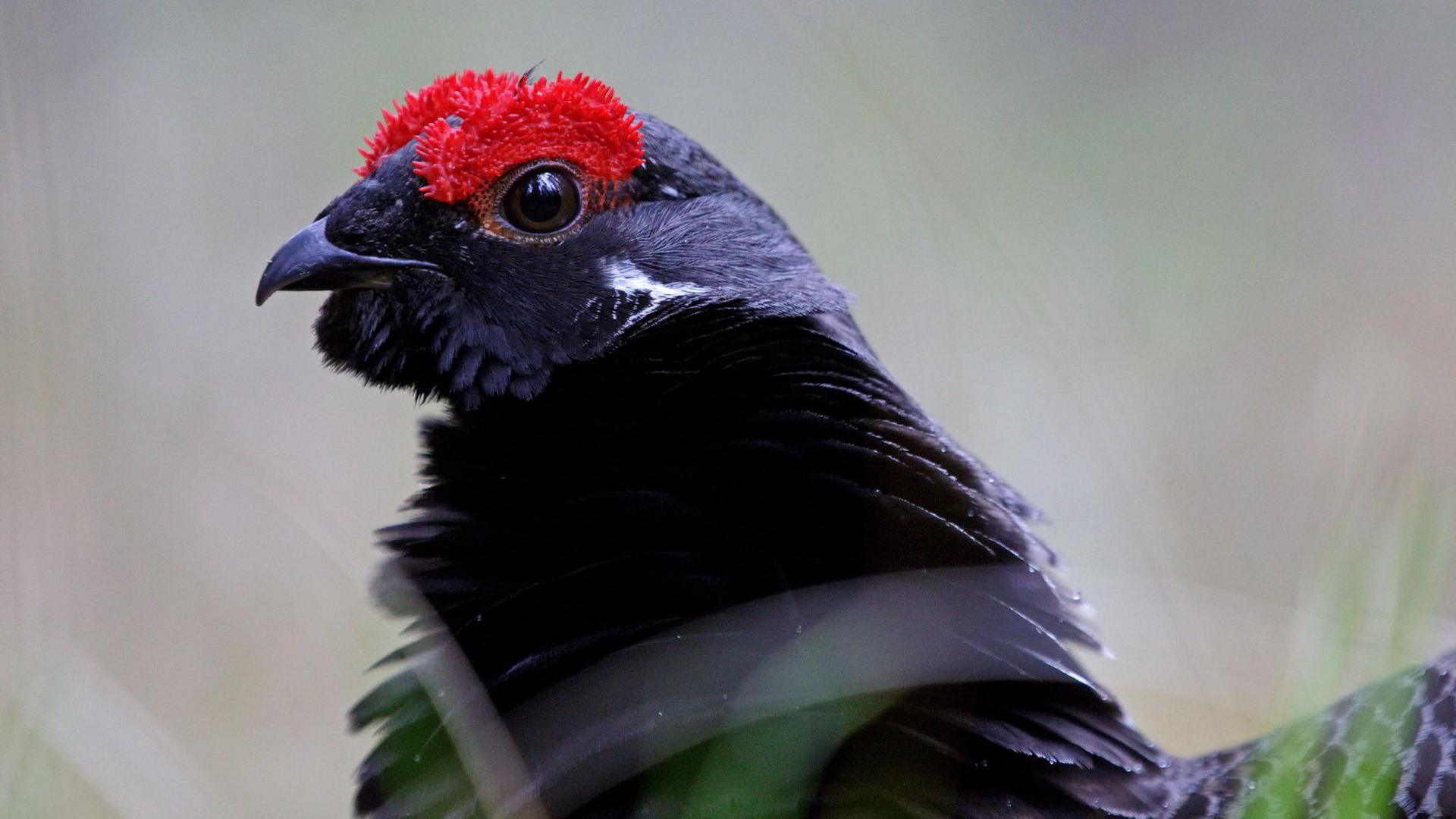
What a close cluck!
- Published
Rewilding efforts in part of the Scottish Highlands have led to the number of an "amazing species" of endangered bird reaching their highest levels for 17 years, according to conservationists.
Black grouse populations have been declining in the UK over recent decades due to threats such as habitat loss and intensive land management.
They are seen as an important species to show how healthy an ecosystem is.
The distinctive black, white and red birds are now on the Royal Society for the Protection of Birds (RSPB) red list, showing they are one of the most endangered species.
However, a study in the Affric Highlands near Inverness has found numbers are recovering well at sites where nature recovery, including restoration of native woods, peatlands and wetlands, is being carried out on a large scale.
More brilliant bird news!
Look, who's squawking? The parrots that like to video call
- Published2 May 2024
Crow way! Are these birds 'smarter' than toddlers?
- Published28 May 2024
Six clever birds you might not know about
- Published13 September 2023
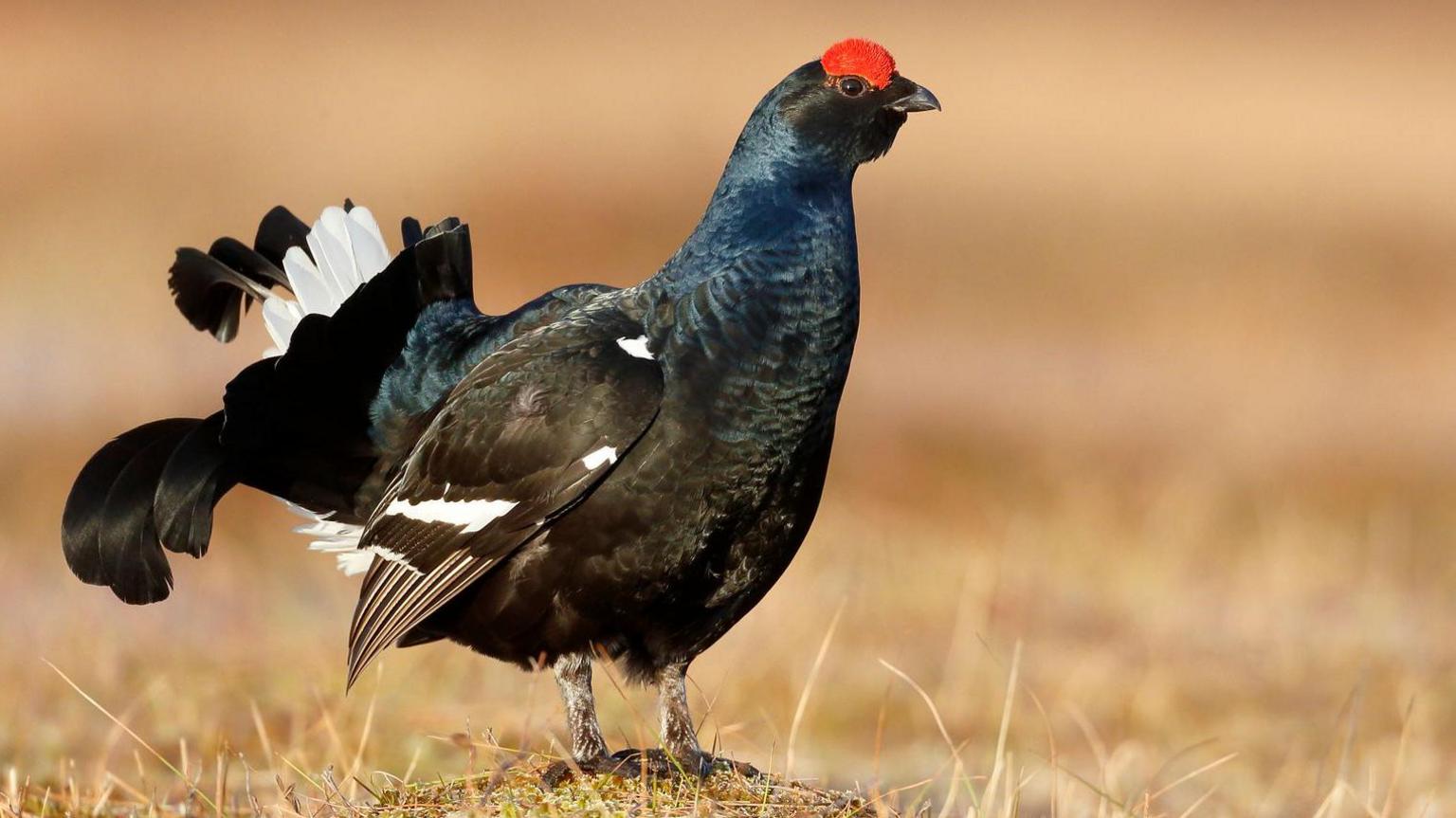
The black grouse is very recognisable through its black, red and white feathers
How have black grouse populations been studied?
The Affric Highlands and RSPB Scotland study involved trained volunteers counting the numbers of males going to mating display sites, known as 'leks', at 14 locations between April and May this year.
The team recorded 405 'lekking' males, up from 378 the last time the survey was done in 2021, and up from the 250 recorded in 2007.
The findings have been described by Affric Highlands field officer Nicola Williamson as a "cause for optimism".
How is the community helping to support nature?
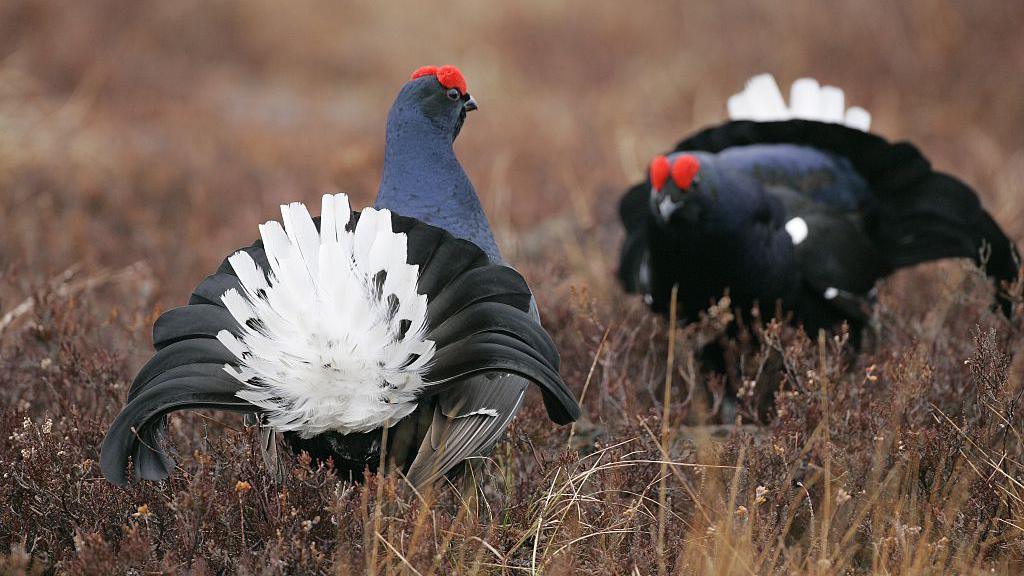
A black grouse putting its tail feathers on display
Although there was an overall rise, the team found the numbers of 'lekking' black grouse males have risen or declined at different sites due to changes in available habitat.
Conservationists say the findings are leading some landowners to think more about how they can help the nature living around them.
At several sites where black grouse populations have gone down, they say, landowners are asking about what they can do to increase numbers.
Simon McLaughlin, RSPB site manager, said: "The support from local volunteers, estates and other organisations this year has inspired optimism that these birds will be well looked after into the future.
"We hope we will see even more of this community involvement going forward and to continue working together to implement measures to safeguard this amazing species."
What is next for the black grouse study?
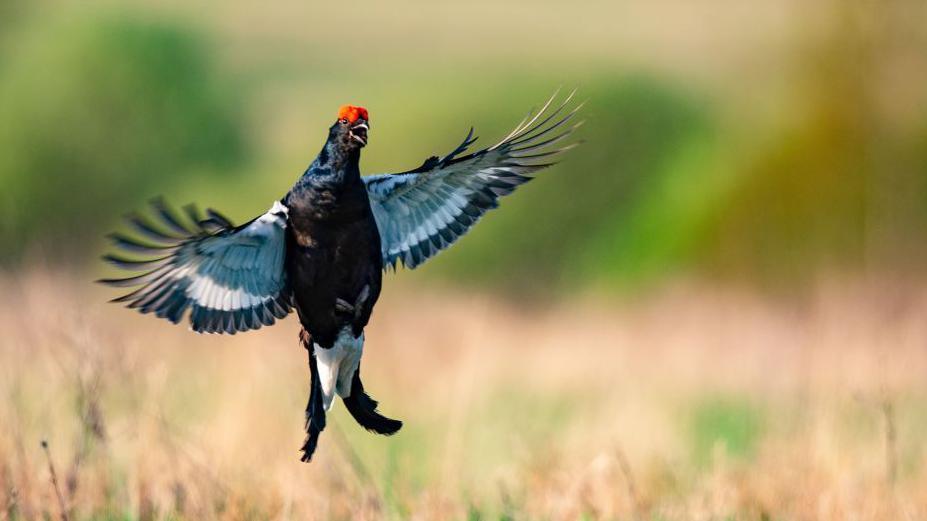
The sky is the limit for the black grouse!
The project now wants to confirm if the upward trend in bird numbers is steady by using more surveys.
It will be running training sessions from this autumn for next year's season of black grouse surveys.
The last UK-wide survey of black grouse was carried out in 2005, and it estimated the overall population at 5,100 males, with 3,400 in Scotland, 1,500 in England and 200 in Wales.
More flappy stories
- Published8 February 2023
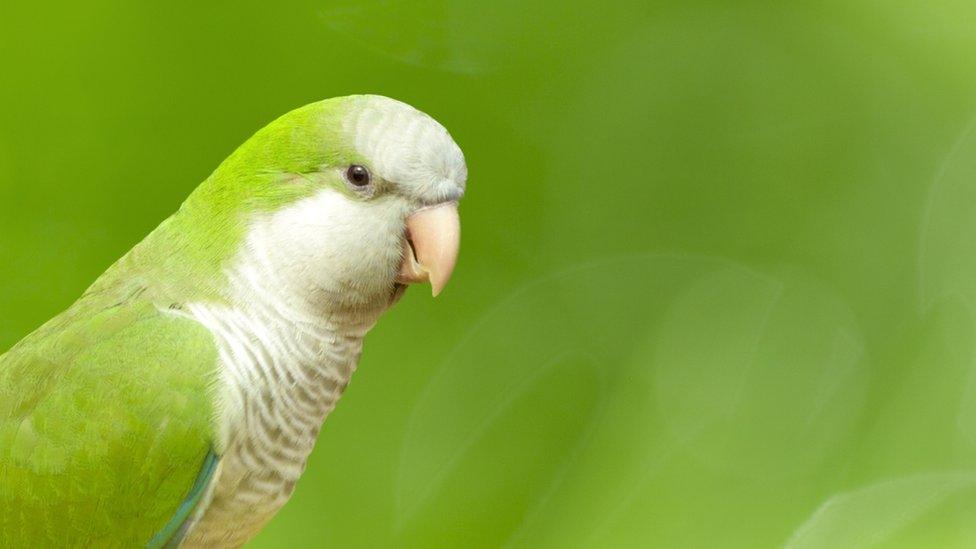
- Published24 March 2022
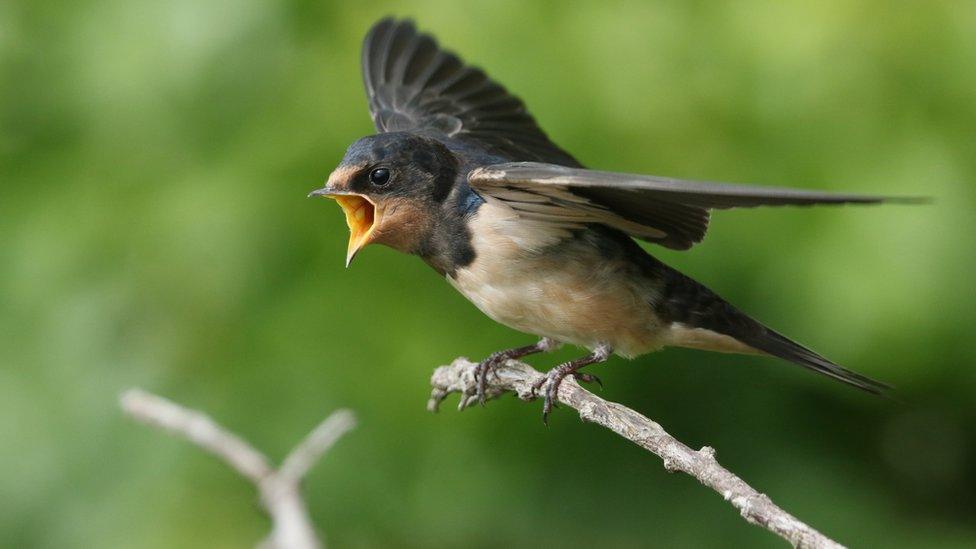
- Published5 June 2024
